
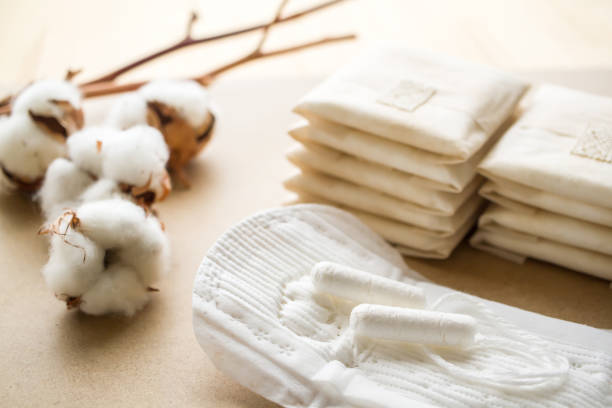
The regular pads and tampons that you use for your period are unsustainable, and not environmentally friendly, but they are still the most used despite the availability of organic and more sustainable period products.
It is said that on average, people who menstruate use between 5,000 and 15,000 pads and/or tampons in their lifetime. Menstrual fluid has to go somewhere, but the use of the more popular products adds up financially. They also end up in landfills, as well as in waterways and the sea.
The organisations, Caribbean Coalition for Maternal and Reproductive Health (CCMRH) and Sustainabelle TT, in a recent small-scale report defines sustainable period products as those which “reduce waste and limit harm to the environment. These may include reusable products such as menstrual cups, menstrual discs, period underwear, and cloth pads/liners.”


They added that, though unsustainable period products are disposable, there are also some disposable products deemed to be sustainable. These include disposable pads and tampons that are made out of 100 per cent organic unbleached cotton that consequently decompose in a shorter period of time than traditional period products.
The report, which is a preliminary analysis of period product use in the Caribbean, highlights some of the barriers faced by menstruators in the Caribbean in using organic and sustainable period products.
In the report, the organisations shared that, “Sustainable period products hold a host of benefits for personal health and hygiene. Many traditional sanitary napkins/pads contain dioxin, a byproduct of chlorine bleaching to whiten the product, a known carcinogen and endocrine disruptor which causes adverse reproductive health effects, including reduced fertility.”
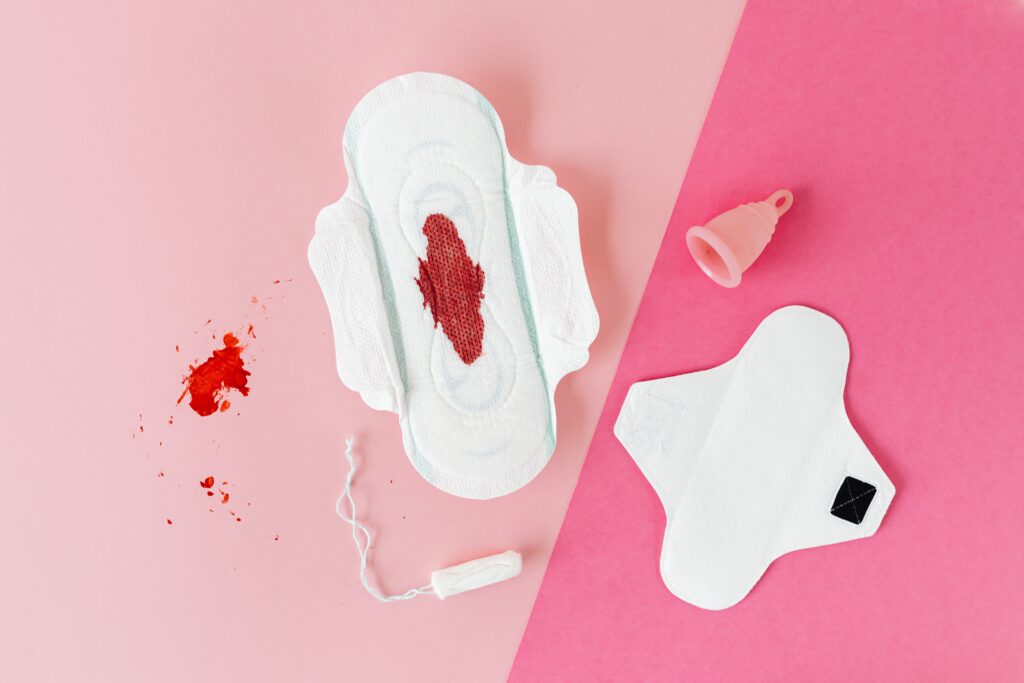
“Tampons are associated with a higher risk of toxic shock syndrome (TSS) than menstrual cups, and whilst tampons may contain substances that can harm the vaginal flora, menstrual cups are designed using medical-grade silicone that is safer for vaginal health,” the report added.
TSS is a rare and life-threatening condition caused by the exotoxins from Staphylococcus aureus (staph) or Streptococcus pyogenes. It is caused by certain strains of bacteria that produce toxins (poisons) and may result in organ failure, of the liver, lungs, heart. It may also result in limb loss.
Unsustainable menstrual products, such as tampons tend to come wrapped in plastic, encased in plastic applicators with plastic strings dangling from one end, and many even include a thin layer of plastic in the absorbent section. Additionally, the plastic applicators from most tampons reportedly take hundreds of years to decompose. Pads, or sanitary napkins generally incorporate even more plastic, from the wrapping and the leak-proof base to the synthetics that soak up fluid.
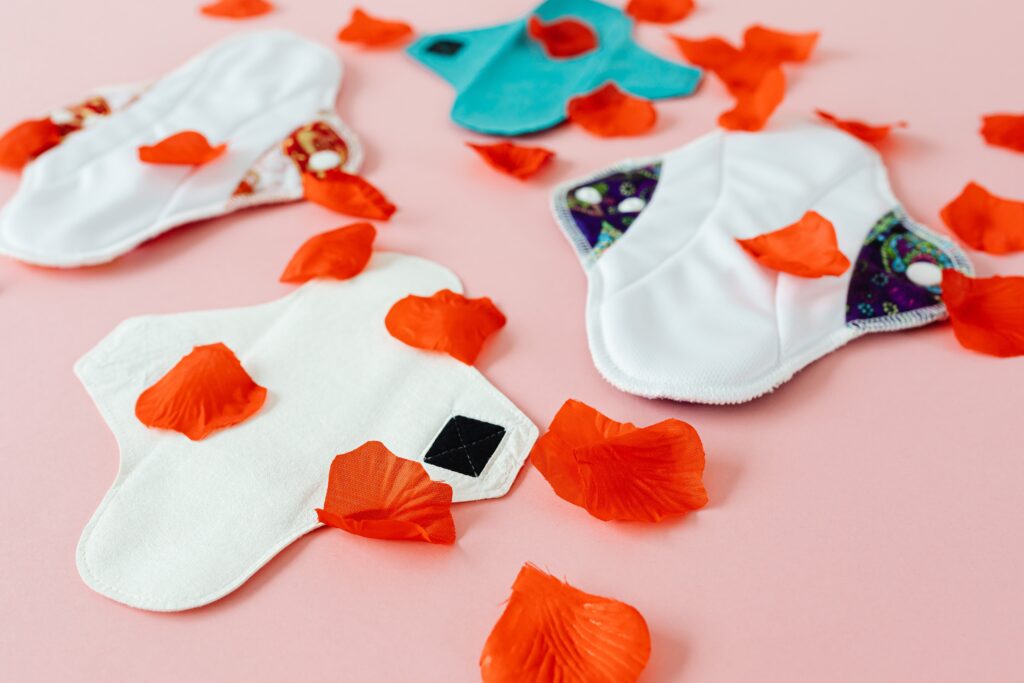
From the report, it is shown that non-organic and unstainable period products are used more than the more environmentally friendly ones. A very high 83.2 per cent reported to use non-organic pads and liners while 23.2 per cent said they use the organic kind. Some 20 per cent of the respondents said they use non-organic tampons while 4.2 per cent responded as users of organic tampons.
It is based on those concerns that menstruating people are urged to reduce or cease their use of unsustainable period products and venture into a sustainable and eco-friendly world.
Barriers faced in using sustainable period products
Though one of the environmentally conscious steps menstruators could take is to switch from unsustainable to sustainable products, the barriers reportedly faced are telling.
The study, whose sample size included 12 in-depth interview respondents and 94 survey respondents included representation from Aruba, Antigua and Barbuda, Bahamas, Barbados, Bonaire, Curacao, Dominica, Grenada, Guyana, Haiti, Jamaica, St. Kitts and Nevis, St. Lucia, St. Vincent and the Grenadines, and Trinidad and Tobago.
The preliminary report revealed that the barriers preventing the use of sustainable period products include financial cost, lack of access, discomfort in use, and lack of knowledge regarding product use.

From the study, 56.9 per cent of respondents said that sustainable and organic period products are difficult to find within their communities or country while 39.7 per cent of the respondents said the products are too costly.
Some of the results that highlight the use of organic products are:
- 38.3 per cent of the participants reported that they use sustainable and organic period products.
- Of that amount, 75 per cent said that they use organic products because the practice is good for the environment.
- An additional 72.2 per cent said they choose the organic route because it is better for their bodies
The organisations that spearheaded the small-scale research highlighted that, though there were shortcomings such as low responses and the limitation of only English respondents, they believe that the findings are “useful, preliminary insights into trends in sustainable period product use across the region.”
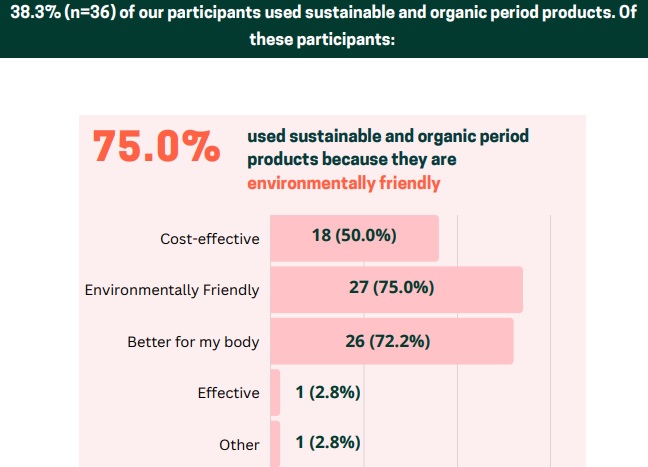
“Future work should aim to reduce barriers to use and to ensure that sustainable period products are more readily available and accessible within Caribbean countries. CCMRH and Sustainabelle remain committed to work in this area, and to partnership with other organisations that are also interested in advancing this very important work as we strive towards our outlined next steps,” said CCRMH and Sustainabelle TT.
“While we received great feedback from participants pertaining to the barriers and facilitators to their use of sustainable period products, we know that there is certainly more work to be done to ensure further representation across countries in this data, including gaining insights from individuals in languages other than English. A key component of the future work that we aim to complete following this preliminary analysis will involve broadening country and linguistic representation to ensure more widespread participation,” they said.
Connect with Sustainabelle TT and Caribbean Coalition for Maternal and Reproductive Health on Instagram @sustainabelle_tt and @caribbeancmrh
RELATED Ways to relieve menstrual cramps
RELATED Be wary of tampons and Toxic Shock Syndrome
Send feedback to [email protected]


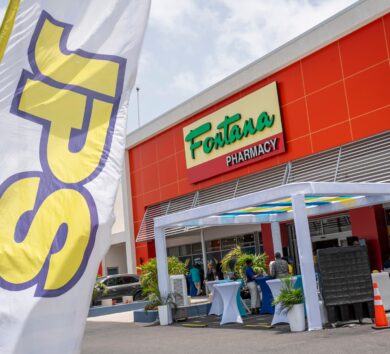


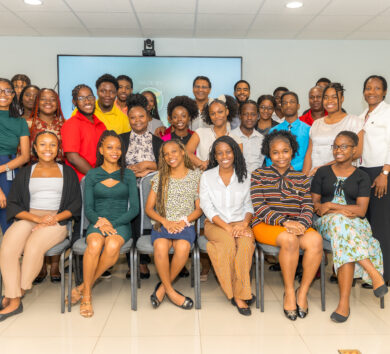

Comments